
School of Mechanical and Aerospace Engineering, Nanyang Technological University, Singapore, Singapore3D printing; Bioprinting; Tissue engineering; Hybrid metal; AI machine learning for 3D printing
Professor and Chair of School of Mechanical & Aerospace Engineering at NTU Singapore
Top 50 Asia Women Tech Leaders 2024
SG100 Women in Tech 2021
TCT Women in 3D Printing Innovator Award 2019
Top 1% Highly Cited Researchers 2022,2024 by Clarivate
Ranked #1 in 3D printing (prior 5 years) by Scholar GPS

School of Engineering and Applied Science, Ahmedabad University, IndiaPrinted electronics; Bioelectronics; Biodegradable electronics; Nanoelectronics; Additive manufacturing; Machine learning for materials
IEEE senior member and Chair of Women in Engineering (WiE) affinity group, Denmark section, IEEE.

School of Mechanical Engineering at Dublin City University (DCU), Dublin, IrelandAdditive manufacturing; Laser processing; Materials engineering; Near net shape forming; Data capture, Analysis and control; AI for process and part design
Prof. Dermot Brabazon holds a Full Professorship of Materials Science and Engineering in the School of Mechanical Engineering at Dublin City University (DCU). He is Director of the DCU Institute of Advanced Processing Technology, Director for the Centre for Doctoral Training in Advanced Metallic Systems (RoI), and Deputy-Director of I-Form, the Research Ireland centre focused on the development of manufacturing technologies. From 1995 to 2000 he worked with Materials Ireland, a state materials science research centre. From 2000 he was appointed as a lecturer at Dublin City University, promoted to Senior Lecturer in 2006, Deputy Head of School in 2007, Associate Dean for Research in 2009, Professor in 2014, and Full Professor in 2020. In recognition of his academic achievements and contributions to development of engineering technologies, Dermot was conferred with the President’s Award for Research in 2009, appointed a Fellow of the Institute of Mechanical Engineering in 2015, received Invent Commercialization awards in 2015, 2017, 2018, 2022, and the International AMPT Gold Medal in 2018 for lifetime achievements in materials processing research and education. Dermot is Editorial Board Member for the journals of Advances in Materials and Processing Technologies, Nanomanufacturing and Nanometrology, Metals, Materials, the International Journal of Material Forming, and Editor in Chief for the Elsevier Materials Reference Works Encyclopaedia. He was appointed in 2010 and is currently a member of the Board of Directors of ESAFORM (EU Material Forming Society). His research focuses on materials and processing technologies, including Additive Manufacturing, Near Net Shape Forming, Laser Processing and AI for process control and part design. These overlapping activities are focused toward the development of advanced materials science and engineering knowledge to enable improved product and production, capability and quality, for the benefit of companies and the broader society.

Department of Industrial Engineering, University of Naples Federico II, Naples, ItalyDesign for additive manufacturing; Generative design; FEA; Biomimetics and bioinspiration; Materials science and technology; Biomaterials; Material characterization; Concrete technologies; Biomechanical engineering; Nanomaterials synthesis; Polymeric materials
Antonio Gloria is Professor of Design and Methods of Industrial Engineering at the University of Naples Federico II. He is also Professor of “Bio-Inspired Generative Design for Additive Manufacturing”. Since 2011 he is Visiting Professor at the CDRSP - Polytechnic Institute of Leiria, Portugal. He was a Senior Researcher at the National Research Council of Italy (Institute of Polymers, Composites and Biomaterials).
Antonio Gloria is a member of the Italian Association of Design Methods and Tools for Industrial Engineering. In 2016 he was appointed as member of the Scientific Advisory Board of the Fraunhofer International Joint Laboratory IDEAS – University of Naples Federico II and member of The Royal Society (UK) - International Exchanges Committee in January 2020.
Antonio Gloria was awarded and appointed as “Future Leader” in Science and Technology (“Dialogue between Nobel Laureates and Future Leaders”, STS forum – October 2015, Kyoto, Japan). He is a member of international scientific committees and chaired technical sessions in seminars, conferences and workshops. He is currently author of international papers, book chapters, communications/contributions in international and national conferences. He is also reviewer and Editorial Board Member of international scientific journals.
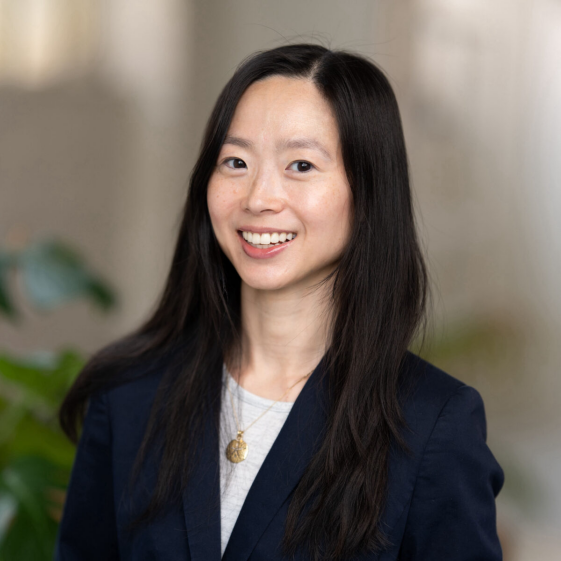
Department of Mechanical Engineering, University of California, Berkeley, United StatesComposites; Solid mechanics; Bioinspired materials; Artificial intelligence & machine learning; Smart additive manufacturing; In-situ monitoring and process control; Mechanical characterization
ACS PMSE Journal of Polymer Science Innovation Award (2025)
Advanced Science Young Innovator Award (2025)
ASME Sia Nemat-Nasser Early Career Award (2025)
Presidential Early Career Award for Scientists and Engineers (2025)
AFOSR Young Investigator Award (2025)
SAE International Educational Award Honoring Ralph R. Teetor (2025)
EML Young Investigator Award (2024)
TMS Young Leaders Professional Development Award (2024)
PPS Early Career Award (2024)
US FOE Symposium, National Academy of Engineering (2024)
ARO Early Career Program Award (2024)
SES Young Investigator Medal (2024)
LLNL Early Career UC Faculty Initiative Award (2023)
Materials Today Rising Star Award in Materials Data Science & AI (2023)
ASME Orr Early Career Award (2023)
DARPA Director’s Fellowship (2023)
TMS Early Career Faculty Fellow Award (2023)
Lam Research Unlock Ideas Award (2023)
Amazon Research Award (2022)
Sloan Research Fellowship in Physics (2022)
Bakar Fellows Spark Award (2022)
ACS PMSE Young Investigator Award (2022)
ONR Young Investigator Award (2021)
Prytanean Faculty Award (2021)
Lam Research Unlock Ideas Award (2021)
DARPA Young Faculty Award (2021)
MRS Communications Lecture Award (2020)
SME Outstanding Young Manufacturing Engineer Award (2020)
Hellman Fellowship (2020)
MIT Technology Review 35 Innovators Under 35 (2019)
3M Non-Tenured Faculty Award (2019)
Johnson and Johnson WiSTEM2D Scholars Award in Manufacturing (2019)
ASME Haythornthwaite Research Initiation Award (2019)
Amazon Research Award (2019)
Materials Horizons Outstanding Paper Prize (2019)
MIT Meredith Kamm Graduate Women of Excellence Institute Award (2018)
American Ceramic Society Graduate Excellence in Materials Science Award (2017)
MRS Graduate Student Award (2017)
National Defense Science and Engineering Graduate (NDSEG) Fellowship (2015)

Department of Mechanical Engineering, Hashemite University, Zarqa, JordanGreen composites; Lignocellulosic materials; Biocomposite technology; Sustainable composites; Materials modeling; FEA; Mechanical behavior of materials; Material characterization; Nanomaterials.
Ranked #19 in Design (prior 5 years) by Scholar GPS
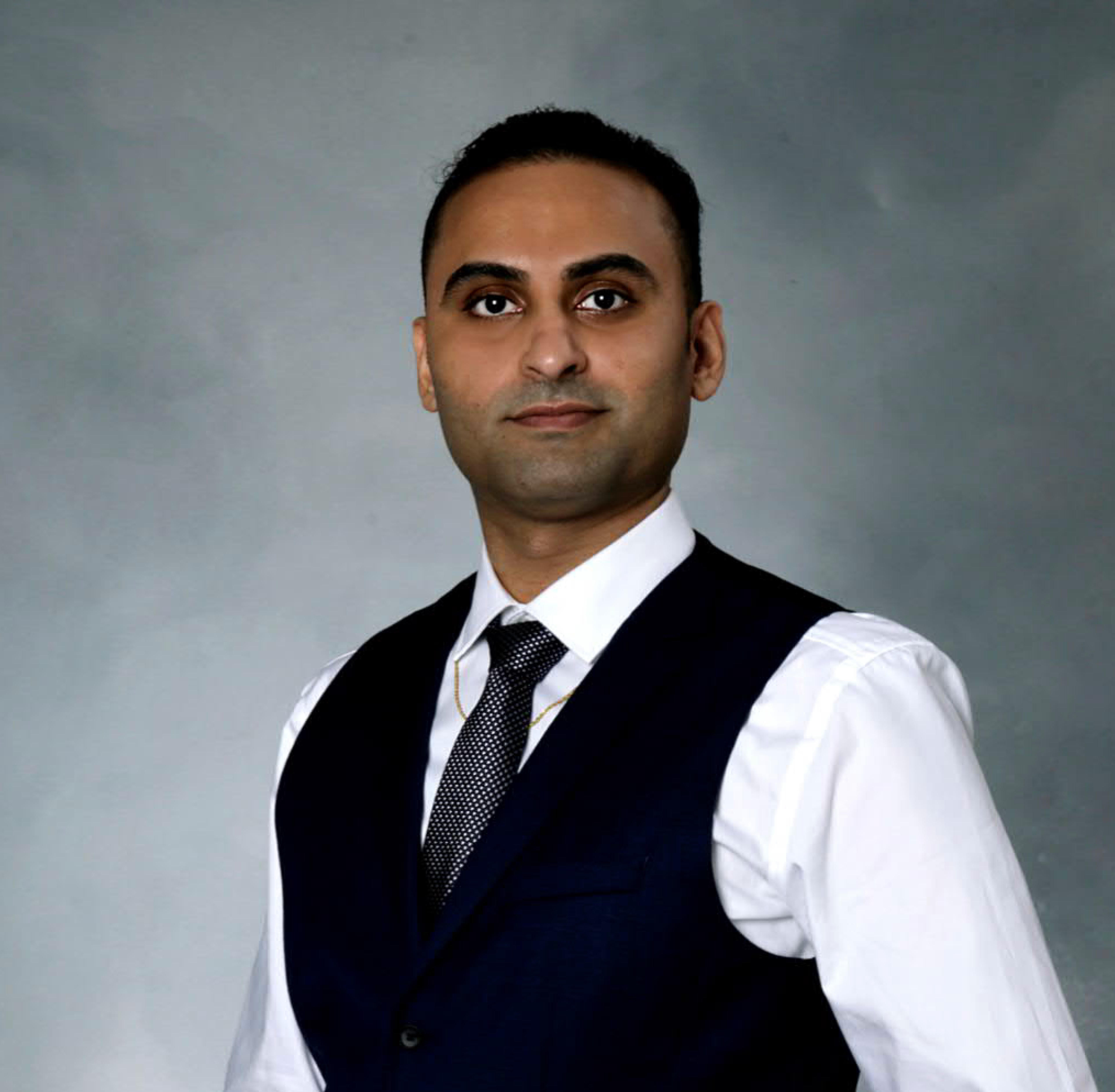
T212 Department of Energy and Mechanical Engineering, Aalto University, Espoo, FinlandEngineering product development; Product design; Advanced manufacturing; 3D printing; Artificial intelligence
Prof. Jan Akmal is the tenure track professor of engineering product development at the School of Engineering, Aalto University. He seeks to advance the interplay between design and manufacturing to help create products, processes, and materials of tomorrow. His research team is co-piloting the product development process with artificial intelligence technologies, not only as a tool for design, but also for creating business potential.
After receiving his secondary education in Toronto, Canada, Prof. Akmal also completed the advanced general certificate of education from Cambridge University. Following the completion of his bachelor’s double degree from Germany and Finland, he graduated with distinction with a master’s degree from the Department of Mechanical Engineering in Aalto University. He defended his PhD in 2022, which also received an honorary award from the Finnish Production Planning and Control Society.
Prof. Akmal is currently serving as the programme director at Aalto School of Engineering for the Master's Programme in International Design Business Management (IDBM), which is jointly organized by all six Schools of Aalto University. He has taken guest editor and reviewer roles in various leading scientific journals. He is also contributing to the Aalto Digital Design Laboratory (ADDLAB), Aalto Design Factory (ADF), and Aalto Production Engineering Laboratory as a professor of product development. Prof. Akmal is also serving as the vice-president of the Finnish Rapid Prototyping Association.

Department of Mechanical Engineering, George Mason University, Fairfax, VA, 22030, USAAdditive manufacturing; Fatigue and fracture; Corrosion and electrochemistry; Reliability; Computational materials science and engineering; Machine learning
Mehdi Amiri is an Assistant Professor in the Mechanical Engineering Department at George Mason University. He joined George Mason in the Spring of 2019 and since then he is enjoying training and mentoring the next generation of talented mechanical engineers. His research interests focus on the behavior of structural materials under operational conditions, in particular the effects of materials' microstructure on performance under mechanical and environmental loadings. This encompasses a broad class of materials systems, from engineering alloys to state-of-the-art high entropy alloys (HEAs), with problems including the effect of the manufacturing process route on mechanical properties, microstructure evolution, and materials performance.

Faculty of Engineering, Aurel Vlaicu University of Arad, Arad, RomaniaArtificial intelligence; Autonomous systems; Bioengineering; Brain-computer interface; Computer vision; Human-computer interaction; Real-time & embedded systems; Robotics; Scientific computing & simulation; Spatial & geographic information systems
Valentina E. Balas is currently Full Professor in the Department of Automatics and Applied Software at the Faculty of Engineering, “Aurel Vlaicu” University of Arad, Romania. She holds a Ph.D. Cum Laude, in Applied Electronics and Telecommunications from Polytechnic University of Timisoara. Dr. Balas is the author of more than 400 research papers.
She is the Head of Intelligent Systems Research Centre in Aurel Vlaicu University of Arad. She served as General Chair of the International Workshop Soft Computing and Applications (SOFA) in the interval 2005-2022. She is a member of the specialized committee "Computers, Information Technology, and Systems Engineering" of the National Council for Attestation of University Titles, Diplomas, and Certificates for the 2024-2028 term. Dr. Balas participated in many international conferences as Honorary Chair and Keynote Speaker. Recently she was working on a project with EU funding support: BioCell-NanoART = Novel Bio-inspired Cellular Nano-Architectures - For Digital Integrated Circuits, 3M Euro.
She is a member of European Society for Fuzzy Logic and Technology (EUSFLAT), member of SPIE and an IEEE Senior Member, During the interval 2021-2022 she was a member of IEEE European Public Policy Committee Working Group on ICT. From May 2023 Dr. Balas is an associate member of Romanian Academy of Scientists. She is recipient of the "Tudor Tanasescu" Prize from the Romanian Academy for contributions in the field of soft computing methods (2019), “Stefan Odobleja” Prize from Romanian Academy of Scientists (2023 and 2024) and Diploma – Section Information Technology from The General Association of the Engineers in Romania 2023.

Department of Business Development and Technology, Aarhus University, Herning, DenmarkIoT; Robotics for manufacturing; AI for nano-materials; Automated processes; 3D printing; Business model innovation; Circular economy; Sustainability
Head of Digi Lab at AU BTECH. Established and lead the RI&D work at the lab as well as educational activities. Many years of experience in research innovation and development (RI&D) within solar energy sector, SCADA, PLC, SQL Server, Labview, intelligent internet of things (IoT), Web pages with Wordpress, HTML5, CSS, JavaScript, PHP, Python, Azure IoT Hub, VS .NET, VMware, GitHub, Smart sensors, Nanotechnology, Laser processing, Printed & conventional electronics design, Power supplies for LEDs, Industrial automation's, Polymer accelerated degradation studies and failure modes prediction, Roll to roll coating and flexible encapsulation and software programming.

Department of Chemical Engineering Materials Environment, Sapienza University of Rome, Rome, ItalyMechanics of materials; Fatigue; Fracture mechanics; Structural integrity; Additive materials and weldments
Filippo Berto is full professor of Mechanics of Materials at La Sapienza University of Rome, Department of Chemical Engineering, Materials and Environment. He received the Phd from University of Florence in 2006 and the master degree in Industrial Engineering from University of Padua in 2003. He has been international chair in fracture mechanics, fatigue, and structural integrity at the Norwegian University of Science and Technology of Trondheim, Norway. Previously he was associate professor of machine design at the University of Padua, Italy.

School of Design, Shanghai Jiao Tong University, Shanghai, ChinaArtificial intelligence for design; Smart product service system; Cross-device interaction; Product innovation strategy
Prof. Danni Chang is an Associate Professor and Vice Dean of the School of Design at Shanghai Jiao Tong University. She obtained her Bachelor's degree in Mechanical Engineering from Tsinghua University and her PhD degree from the Design and Human Factors Lab at Nanyang Technological University, Singapore. Prof. Chang has been awarded the Shanghai "Pujiang Talent" (2017), Shanghai "Chenguang Scholar" (2018), Shanghai Jiao Tong University "Morning Star Scholar" (2019), Shanghai Jiao Tong University "Outstanding Young Professional" (2023). Her teaching excellence has been honoured with the National Teaching Achievement Award and Shanghai Outstanding Teaching Achievement Award. She has guided students to win over 20 domestic and international design competition awards. As a principal investigator, she has led multiple research projects funded by the National Natural Science Foundation of China (NSFC), the Ministry of Education Philosophy and Social Science Foundation, and the Shanghai Philosophy and Social Science Foundation. She has published over 60 academic papers, and serves as a reviewer for more than 10 SCI-indexed publications. Her research interests include smart product-service systems, human-computer interaction (HCI), user study, and data-driven design innovation.

Big Data Engineering and Analytics Laboratory (iDEA Lab), University of Calabria, Rende, ItalyBig data; Database systems; OLAP; Data warehousing; Knowledge discovery
Alfredo Cuzzocrea is an associate professor in computer engineering with the University of Calabria, Rende, Italy. He is the Head of the Big Data Engineering and Analytics Lab of the University of Calabria. His current research interests include span the following scientific fields: big data, database systems, data mining, data warehousing, and knowledge discovery. He is author or co-author of more than 520 papers in international conferences, international journals and international books. He is recognized in prestigious international research rankings, such as: (i) Top Scientists in Computer Science and Electronics by Guide2Research, Clifton, NJ, USA; (ii) Top Italian Scientists in Computer Sciences by Virtual Italian Academy, Manchester, UK; (iii) Top Researchers in Computer Science 2013–2018 by SciVal Elsevier, Amsterdam, Netherlands.

1. ICB UMR 6303, Belfort-Montbeliard University of Technology, UTBM, Belfort, France
2. Institut universitaire de France (IUF), Paris, FranceComputational design; AI-based design; Neuro-symbolic AI; 4D printing; Multi-material additive manufacturing; Active composite structures
Frédéric Demoly is currently Associate Professor at ICB UMR 6303 CNRS from Univ. Bourgogne Franche-Comté UBFC, UTBM (France). Previously, he was involved as a Postdoctoral Researcher at Laboratory of Computer-Aided Design and Production (LICP) from Swiss Federal Institute of Technology (EPFL) in Lausanne (Switzerland) by being team leader in FP7 running projects as well as FP7 project proposals. He obtained his PhD in Integrated design and Product-Process Data Management from UBFC in 2010. He received his Master’s degree in Mechanical Engineering from UBFC in 2007. Dr. Demoly is also associate member of the Design Society and senior member in IFIP WGs 5.1 & 5.7. He is currently leading a research group with 3 PhDs students on formalism, methods and tools for proactive design of adaptable and transformable products. His current research interests include proactive design engineering, knowledge formalization and representation, advanced computer-aided design, formal ontology development, qualitative description in product design and manufacturing, orchestration of information flows in PLM, spatiotemporal mereotopology applied to adaptable and reconfigurable systems, additive manufacturing, smart materials and 4D printing.

1.Institute of Energy Materials Science (IEMS), University of Shanghai for Science and Technology, 516 Jungong Road, Shanghai, 200093, China;
2.Institute for Superconducting & Electronic Material, University of Wollongong, Wollongong, AustraliaMaterials engineering; Structure and dynamics of materials; Nano chemistry; Condensed matter physics; Physical properties of materials
Shi Xue Dou is director and professor of Institute of Energy Materials Science at University of Shanghai for Science and Technology since 2022, was a Distinguished Professor at University of Wollongong, UOW (2014-2021, Research Ambassador to Asia (2018-2021), and the founding director of Institute for Superconducting & Electronic Materials at UOW. He received his PhD at Dalhousie University, Canada in 1984, DSc at the University of New South Wales in 1998 and was elected as a Fellow of the Australian Academy of Technological Science and Engineering in 1994. He was awarded the Australian Government’s Centenary Medal in 2003 and Australian Order of Member in 2019 for his contribution to materials science and engineering, multiple Australian Professorial Fellowships from 1993 to 2011, the Vice-Chancellors Senior Excellence Award in 2008, Outstanding Partnership Award in 2012, the ASTS Lifetime Achievement Award in 2018, Lifetime Achiever by Australian Research Magazine in 2020, the International Cryogenic Materials Conference (ICMC) Lifetime Achievement Award in 2021, Lifetime achievement leading scientist in nanotechnology, materials engineering and electrochemistry in Australia by Australian Research Magazine in 2021,2022 and 2023 and International Magnesium Science & Technology Committee Lifetime Achievement Award in 2024. He is named as a highly cited researcher in materials science by Thomson Reuters since 2018 and in both materials science and chemistry in 2020-2024 with citations of 110000 and h-index of 161 (Scopus). His research focusses on energy and electronic materials. He has supervised and co-supervised 100 PhD students, more than 60 postdoctoral and visiting fellows. He is program leader for Auto CRC 2020 on electrification program and the on-going ARENA 2016-2022 on smart sodium storage system program. He established Institute of Energy Materials Science (IEMS) in June 2023 at USST and has attracted 25 world talents to join the IEMS.

School of Mechanical Engineering, Shanghai Jiao Tong University, Shanghai, ChinaAI for energy system; Data mining and machine learning; Building energy saving and intelligent control; Data science

Mechanical Industrial and Manufacturing Engineering Department, University of Toledo, Toledo, OH 43606, USAAlloy development; Shape memory alloys; Additive manufacturing; DED; LPBF; AI
Dr. Mohammad Elahinia is the Dean of the College of Engineering and a University Distinguished Professor in Engineering at The University of Toledo. Appointed Dean in March 2025, he previously served as the Interim Dean for one year and as Chair of the Mechanical, Industrial, and Manufacturing Engineering (MIME) department for five years. He has been a faculty member at UToledo since 2004.
Dr. Elahinia received his M.S. in Mechanical Engineering from Villanova University in 2001 and his Ph.D. in Mechanical Engineering from Virginia Tech in 2004. His research is centered on smart material systems and advanced manufacturing, with a focus on the additive manufacturing of functional materials like shape memory alloys for aerospace and biomedical applications. His research has been consistently funded by federal agencies including the National Science Foundation, the Department of Defense, the Department of Energy, and NASA.
Dr. Elahinia is a Fellow of the American Society of Mechanical Engineers (ASME) and the International Society for Optics and Photonics (SPIE). His contributions have been recognized with numerous honors, including the University of Toledo's Outstanding Scholarly and Creative Activity Award (2024), the Virginia Tech Mechanical Engineering Society of Distinguished Alumni Award (2023), the John J. Gallen Memorial Award from Villanova University's College of Engineering (2023), and his appointment as a University Distinguished Professor in Engineering (2020).

Beijing Institute for Stem Cell and Regenerative Medicine & Institute of Zoology, Chinese Academy of Sciences, Beijing, ChinaBioinspired engineering; Biofabrication; 3D printing; Biomedical materials; Biomechanics
Dr Gu is currently appointed as a Full Professor, Director of Chinese Academy of Sciences (CAS) Engineering Lab for Intelligent Organ Manufacturing and group leader of Bioinspired Engineering, at Institute for Stem Cell and Regeneration (ISCR) | Institute of Zoology (IOZ), CAS. Dr Gu has interdisciplinary training in materials chemistry and stem cells. His first doctoral career (2009-2013) is mainly engaged in research on stem cells at Northeast Agricultural University and Chinese Academy of Sciences. He completed a second PhD (2013-2017) in Chemistry at University of Wollongong (UOW) followed by being appointed as an Associate Professor at IOZ, CAS and establishing his lab, Bioinspired Engineering. He became Full Professor at IOZ, CAS at the end of 2019. Prof Gu focuses on developing novel biomaterials and advanced technologies, 3D/4D bioprinting to regulate stem cell fate, fabrication of functional 3D organs and even live organisms in vitro. These studies are applied to understand the mechanism of life and establish novel therapeutic methodologies. Prof Gu has previously published 33 first-author and corresponding author peer-reviewed journal articles, including Adv. Funct. Meter., Adv. Sci., Angew. Chem. Int. Ed., Materials Horizons, Adv. Healthc. Mater. etc., mostly on bioprinting, biofabrication, biomaterials and stem cell engineering over the past 5 years. Furthermore, Prof Gu has been invited to finish 3 book chapters and co-inventor on seven patents.
Selected Prizes, awards and honors
• 2023 Australia China Alumni Award for Research and Science (Judges’ Commendation and Winner), Australia China Alumni Association
• 2023 Excellent Final Evaluation, Hundred Talents Program of the Chinese Academy of Sciences
• 2023 Outstanding Young Talents of “Phoenix Project” in Chaoyang District, Beijing
• 2022 Chinese Society of Stem Cell Research (CSSCR) Young Investigator Award
• 2022 Excellent Young Scientists Fund, National Natural Science Foundation of China (NSFC)
• 2020 Final Evaluation of “Hundred Talents Program”, Chinese Academy of Sciences
• 2017 “Hundred Talents Program” Youth Talent of Chinese Academy of Sciences
• 2017 UOW Outstanding Thesis
• 2017 Chinese Government Award for Outstanding Self-Financed Students Abroad

Department of Mechanical Engineering, University of Isfahan, Isfahan, IranAdditive manufacturing; FFF 3D&4D printing; Metastructures; Polymer composites; Fatigue and fracture of composites
World's top 2% scientists (2024): Published by Elsevier.
Top researcher of Isfahan province in the field of engineering (2023)
World's top 2% scientists (2023): Published by Elsevier.

Department of Mechanical Engineering, Ulsan National Institute of Science and Technology, Ulsan, South KoreaMachine learning for manufacturing & materials; Machine learning for additive manufacturing; Powder metallurgy; Bio-medical 3D printing; Meniscus-guided printing; Printed electronics
Professor, Ulsan National Institute of Science and Engineering (UNIST) (2020 ~)
Senior Researcher, Korea Institute of Materials and Science (KlMS) (2017 ~ 2020)
Postdoctoral Fellowship, Nanyang Technological University (NTU) (2016 ~ 2017)
Ph.D. Pohang University of Science and Technology (POSTECH), Departement of Mechanical Engineering (2016)

Department of Mechanical Engineering, Korea Advanced Institute of Science and Technology, Daejeon, South KoreaComposite materials; Composite manufacturing optimization using AI; Mechanical design with composite materials based on AI optimization
Seong Su Kim is an Associate Professor in the Department of Mechanical Engineering at KAIST. He has expertise in the mechanical design of composite structures and the improvement of energy storage systems using functional composite materials.
After receiving his Ph.D. degree from the Department of Mechanical Engineering of KAIST in 2007, he worked for two years as a research professor at KAIST to develop a new LNG containment system using composite structures. He moved to the University of Tokyo, Japan in 2009 as a Global Centers of Excellence Program (GCOE) researcher. There he conducted research on the curing process for thermosets composites using optical fiber sensors until 2010.
From 2010 to 2017, he worked as an Assistant Professor and Associate Professor in the Department of Organic Materials and Fiber Engineering at Chonbuk National University in Korea. During that time, he concentrated on the composite manufacturing process to enhance the mechanical properties of thermoplastic composites. He joined the Department of Mechanical Engineering of KAIST in February 2017.

School of Manufacturing Systems and Networks, Ira A. Fulton Schools of Engineering, Arizona State University, Tempe, AZ, USAAdditive manufacturing; AI and machine learning for design and manufacturing; Cyber-physical systems; Data fusion and integration; Digital twins; Physics-informed data-driven modeling; Semiconductor manufacturing
Dr. Hyunwoong Ko is an Assistant Professor in the School of Manufacturing Systems and Networks at Arizona State University, where he directs the Digital Manufacturing and Design Laboratory. He joined the ASU faculty in January 2022 after completing postdoctoral training in the Systems Integration Division at the National Institute of Standards and Technology (NIST), USA, where he also conducted research as a research associate during his Ph.D. studies. He received his Ph.D. in mechanical and aerospace engineering from Nanyang Technological University in September 2019. He has developed an interdisciplinary background in AI, data analytics, machine learning, physics-informed data-driven modeling, and autonomous systems in design and manufacturing. His research team focuses on developing cutting-edge machine learning methods and theories for multimodal and multiscale data fusion, as well as the integration of prior and newfound data-driven knowledge. Dr. Ko’s research has been supported by the National Science Foundation (NSF), NIST, and industry partners, including PADT.

Department of Product and System Design Engineering, University of Western Macedonia, Kila, GR50100 Kozani, GreeceAI in product design; CAD/CAM/CAE; AI in manufacturing
Dr. Panagiotis Kyratsis is a Professor and Head of the Department of Product and Systems Design Engineering, University of Western Macedonia, Greece. He is the Director of the Institute of Traditional Architecture and Cultural Heritage, University Research Center "TEMENUS" and the Director of the Computational Design and Digital Fabrication (CODE+) Research Lab.
Dr. Panagiotis Kyratsis received his Ph.D. in the area of CAD-based manufacturing process simulations from the Department of Production Engineering and Management, Technical University of Crete, Greece. He holds a diploma in Mechanical Engineering from the Aristotle's University of Thessaloniki, Greece, and he received his M.Sc. in Automotive Product Engineering and M.Sc. in CAD/CAM from Cranfield University, UK, in 1997 and 1999, respectively.
He has been involved in a number of industrial design projects, and he has a great deal of expertise in both the design and the manufacturing aspects of product development. His main research interests include CAD/CAM/CAE systems, product design, computational design, reverse engineering, prototyping, preserving cultural heritage and manufacturing.
He has published 20 books and more than 200 papers in Scientific Journals and International Conferences. He is the author of three books dealing with the methodological aspects and the appropriate tools used in product design and development. He acts as a member of the editorial board and reviewer to numerous scientific journals and holds 12 industrial designs and 2 patent registered within the Greek Patent Office.

Clark Distinguished Professor and Founding Director of Industrial AI Center, Department of Mechanical Engineering, University of Maryland College Park, College Park, MD, USAIndustrial AI; Cyber physical systems; Digital twin and smart manufacturing
Professor Jay Lee is a Clark Distinguished Chair Professor in Mechanical Engineering at University of Maryland, College Park, and the founding director of the Industrial AI Center. Previously, he served as the Founding Director of the NSF I/UCRC on Intelligent Maintenance Systems (IMS) which has developed research memberships with over 100 global companies since 2000 and was selected as the most economically impactful I/UCRC in the NSF Economic Impact Study Report in 2012. Formerly, he also served as Vice Chairman and Board Member for Foxconn Technology Group. His research interest primarily focuses on Industry 4.0, PHM, Smart Manufacturing, Industrial AI and Machine Learning, and Digital Twin.

School of Mechanical and Manufacturing Engineering, The University of New South Wales (UNSW Sydney), Sydney, NSW 2052, AustraliaAdditive manufacturing; Physical metallurgy; Metals & alloys; Machine learning; Sustainability
Dr Xiaopeng Li is currently an Associate Professor in the School Mechanical and Manufacturing Engineering at UNSW Sydney, leading a research group working on additive manufacturing and advanced materials research. He received his PhD degree in Materials Engineering from The University of Queensland, Australia in 2013, where his PhD thesis won the Best Thesis Award by Australian Research Council Centre of Excellence for Design in Light Metals in 2013. After his PhD, he joined The University of Western Australia as an Assistant Professor, working on additive manufacturing of metallic glasses, light alloys and their composites till 2016. Following this, he joined one of the world-famous additive manufacturing groups led by Prof Jean-Pierre Kruth in KU Leuven, Belgium as a Research Fellow till 2017. In 2020, Dr Li was awarded Australian Research Council DECRA Fellow. Since 2020, Dr Li is listed as World’s Top 2% Scientists in Materials & Applied Physics & Enabling Strategic Technologies in the database of the most-cited scientists developed at Stanford University.

Department of Biomedical Engineering, Faculty of Engineering, The Chinese University of Hong Kong, Hong KongOrgan-on-a-chip; Organoid; Biomaterials; Biofabrication; Disease modeling; Musculoskeletal regeneration
Vice-Chancellor Assistant Professor
Department of Biomedical Engineering (BME)
Faculty of Engineering, CUHK
Associate Member
School of Biomedical Sciences (SBS)
Faculty of Medicine, CUHK
Member
Institute for Tissue Engineering and Regenerative Medicine (iTERM)
Faculty of Medicine, CUHK
Co-PI
Center for Neuromusculoskeletal Restorative Medicine (CNRM)
Hong Kong Science Park
Research Associate (by courtesy)
Peter Hung Pain Research Institute (PHPRI)
Faculty of Medicine, CUHK
Member
State Key Laboratory of Digestive Disease
Faculty of Medicine, CUHK
Member
Key Laboratory of Regenerative Medicine, Ministry of Education
SBS, Faculty of Medicine, CUHK
Education
2012-2016 Ph.D. in Biomedical Ceramics (MAE, CoE), Nanyang Technological University (NTU), Singapore
2008-2012 B.Eng. in Mechanical Engineering & Automation, South China University of Technology, China
Awards & Honors
- 2022 CUHK Vice-Chancellor Early Career Professorship
- 2021 Student Trainee Registration Award for ORS 2021, Orthopedic Research Society (ORS)
- 2021 New Investigator Recognition Award Finalist, ORS
- 2020 3rd place in the McGowan Institute for Regenerative Medicine Annual Scientific Retreat Poster Contest
- 2019 Young Investigator Award, Wake Forest Institute for Regenerative Medicine (WFIRM)
- 2019 Scientific Excellence Award, Tissue Engineering and Regenerative Medicine International Society Americas (TERMIS-AM) Student and Young Investigator Sections (SYIS)
- 2019 Travel Award, University of Pittsburgh Postdoctoral Association (UPPDA) Annual Symposium
- 2019 3Rs Award, ORS
- 2017 Audience Favorite, Present Around The World (PATW) Asia Pacific Regional Final, The Institution of Engineering and Technology (IET)
- 2017 First Place in Present Around The World (PATW) Singapore Final, IET
- 2016 First Place in Young Persons’ World Lecture Competition (YPWLC) 2016, The Institute of Materials, Minerals and Mining (IOM3)
- 2016 First Place in Young Persons’ Lecture Competition Singapore (YPLCS) 2016, The Institute of Materials (East Asia)
- 2015 Dragon 100 Young Chinese Leader, Dragon Foundation, HK, China
- 2011 Third Prize in the 4th National Energy-saving and Emission-reduction Contest in Technological Design for College Students, MOE China
- 2011 ETS TOEIC Scholarship, ETS (Educational Testing Service) U.S.

1. College of Stomatology, National Center for Stomatology, National Clinical Research Center for Oral Diseases, Shanghai Key Laboratory of Stomatology, Shanghai Jiao Tong University, Shanghai Research Institute of Stomatology, Shanghai, China
2. Department of Oral and Cranio-Maxillofacial Surgery, Shanghai Ninth People’s Hospital, Shanghai Jiao Tong University School of Medicine, Shanghai, ChinaBiomaterials; Regenerative medicine; 3D printing; Bioprinting
Dr. Kaili Lin, received his Ph.D degree from East China Normal University in 2008. Currently, he services as full professor, group leader and deputy director at Shanghai Key Laboratory of Stomatology. He has been awarded the National Youth Talent Support Program and Lu Jiaxi Award of Chinese Academy of Sciences (CAS) for Young Talents. He has been selected as the Outstanding Academic Leader of Shanghai, and Two-Hundred Talent of Shanghai Jiao Tong University School of Medicine. He worked as Assistant Professor, Associate Professor and full Professor at Shanghai Institute of Ceramics, CAS from 2001 to 2015. Then he served as full Professor at School & Hospital of Stomatology, Tongji University for 3 years. From 2018, Prof. Lin joined the faculty at Shanghai Jiao Tong University School of Medicine. He services as the Associate Editor and Editor Members of 10 Journals. His research interests focus on biomaterials and regenerative medicine, 3D-printing and biomedical applications for bone tissue, cartilage, skin, tooth, periodontium, and nerve tissue, etc. He has published over 120 peer-reviewed journal papers as first and corresponding authors, including in Biomaterials, Bone Research, Advanced Functional Materials, Nano Energy, Acta Biomaterialia, Bioactive Materials, etc. with over 6200 citations (H-index=47). He holds 15 authorized patents.

Northwestern Polytechnical University, Xi'an, ChinaMachine Learning; Finite element simulation; Constitutive model; Damage model; Fatigue model; Phase field model; Nanoindentation; Crystal plasticity; Electronic packaging; Heterogeneity
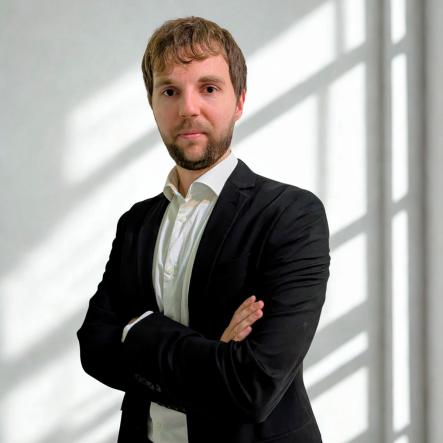
Advanced Materials & Engineering Design (AMED) Lab, Italian Institute of Artificial Intelligence for Industry, Turin, ItalyAI; Architected materials; Materials discovery; Metamaterials; Machine learning
Dr. Marco Maurizi is Principal Investigator and Director of the Advanced Materials & Engineering Design (AMED) Lab at the Italian Institute of Artificial Intelligence for Industry (AI4I) in Turin (Italy). His research bridges artificial intelligence, computational solid mechanics, and additive manufacturing, with a particular focus on physics-informed generative models, graph neural networks, and surrogate solvers for the design of architected materials with tailored and reprogrammable functionalities. Before joining AI4I, Dr. Maurizi was a Postdoctoral Researcher at the University of California, Berkeley, where he co-led AI-driven metamaterials design in Prof. Xiaoyu (Rayne) Zheng’s lab under the NSF DMREF program. He earned his Ph.D. in Mechanical Engineering with merit from the Norwegian University of Science and Technology (NTNU). His work spans impact protection, fracture-resistant lattices, and programmable piezoelectric materials, and builds on collaborations with leading research centers across Europe and the United States. He also serves as a reviewer for journals such as Nature Communications and Nature Computational Science.

University of British Columbia Okanagan, Kelowna, CanadaTextile Composites; Biocomposites; Materials constitutive relations; Finite element modelling; Robust inverse methods; Material selection for end-of-life design strategies; Multiple criteria decision making; Design and analysis of computer & physical experiments; Surrogate models for process optimization; Industry 5.0

School of Mechanical & Aerospace Engineering, Nanyang Technological University, Singapore, SingaporeAI for the design of customized and sustainable products; Services and systems; Multidisciplinary design optimization; Data driven modeling and simulation; Design for 3D printing; Digital twins.

Department of Mechanical Engineering, College of Engineering, Iowa State University, Ames, IA, United States3D printing; Additive manufacturing; Advanced materials; Computational modeling; Digital thread/Digital twin; Machine leaning and deep learning; Manufacturing processes; Welding
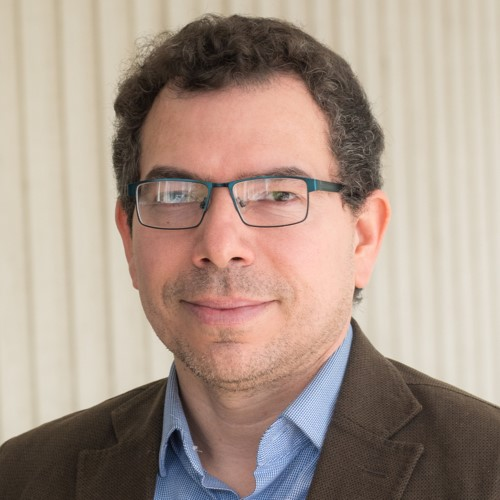
School of Engineering, University of Warwick, Coventry, CV4 7AL, United KingdomAdditive manufacturing; 3D printing; CAD/CAM design; Topology optimization; Medical devices design & manufacture; Materials characterization; AI
Dr Munguia has over a decade of experience working with Additive Manufacturing /3D Printing technologies, CAD/CAM Design, Industrial and manufacturing engineering.
His research encompasses:
3D CAD/CAE design, analysis and design optimization: parametric/generative design, topology optimization
Medical devices design & manufacture
Materials characterization, fatigue/long cycle materials tests
Machinery / test-bench design / purpose built 3D printing systems
Design for Additive Manufacturing / 3D Printing
AI tools for education
Dr Munguia has over a decade of experience working with Additive Manufacturing /3D Printing technologies, CAD/CAM Design, Industrial and manufacturing engineering.
His research encompasses:
3D CAD/CAE design, analysis and design optimization: parametric/generative design, topology optimization
Medical devices design & manufacture
Materials characterization, fatigue/long cycle materials tests
Machinery / test-bench design / purpose built 3D printing systems
Design for Additive Manufacturing / 3D Printing
AI tools for education

College of Engineering and Computer Science, VinUniversity, Hanoi, Viet NamMaterials science; Integrated organic devices; Functional fibers; Polymer engineering; Organic semiconductors
Dr. Nguyen Dang Tung is a materials scientist, specializing in flexible and wearable devices made from organic materials. Dr. Tung graduated from Ecole Polytechnique (France) with an Engineering degree in 2012, and from Swiss Federal Institute of Technology (EPFL, Switzerland) with a PhD in Materials Science in 2017. During his PhD, he invented a new technique to create micro and nano patterns on fibers and textiles, leading to several applications in bioengineering and three international patents. He then moved to UCSB (U.S.A.), working with Prof. Thuc Quyen Nguyen to develop biosensors based on organic electronics. There he developed the first dual-mode organic transistors, 50 years after the invention of dual-mode inorganic transistors. These novel transistors have been used in reconfigurable electronics and biomedical devices.
His work has been published in Advanced Materials, Advanced Functional Materials, Nature Nanotechnology and other top-tier journals. Dr. Tung has supervised fifteen junior researchers at the Bachelor’s and Master’s levels, nine of which were co-authors in his publications.

NOMATEN Centre of Excellence, National Centre for Nuclear Research, Warsaw, PolandMaterials informatics; Multiscale materials modeling; Statistical Mechanics; Alloy composition search and machine learning; Machine learning of strain images; Machine learning of interatomic potentials
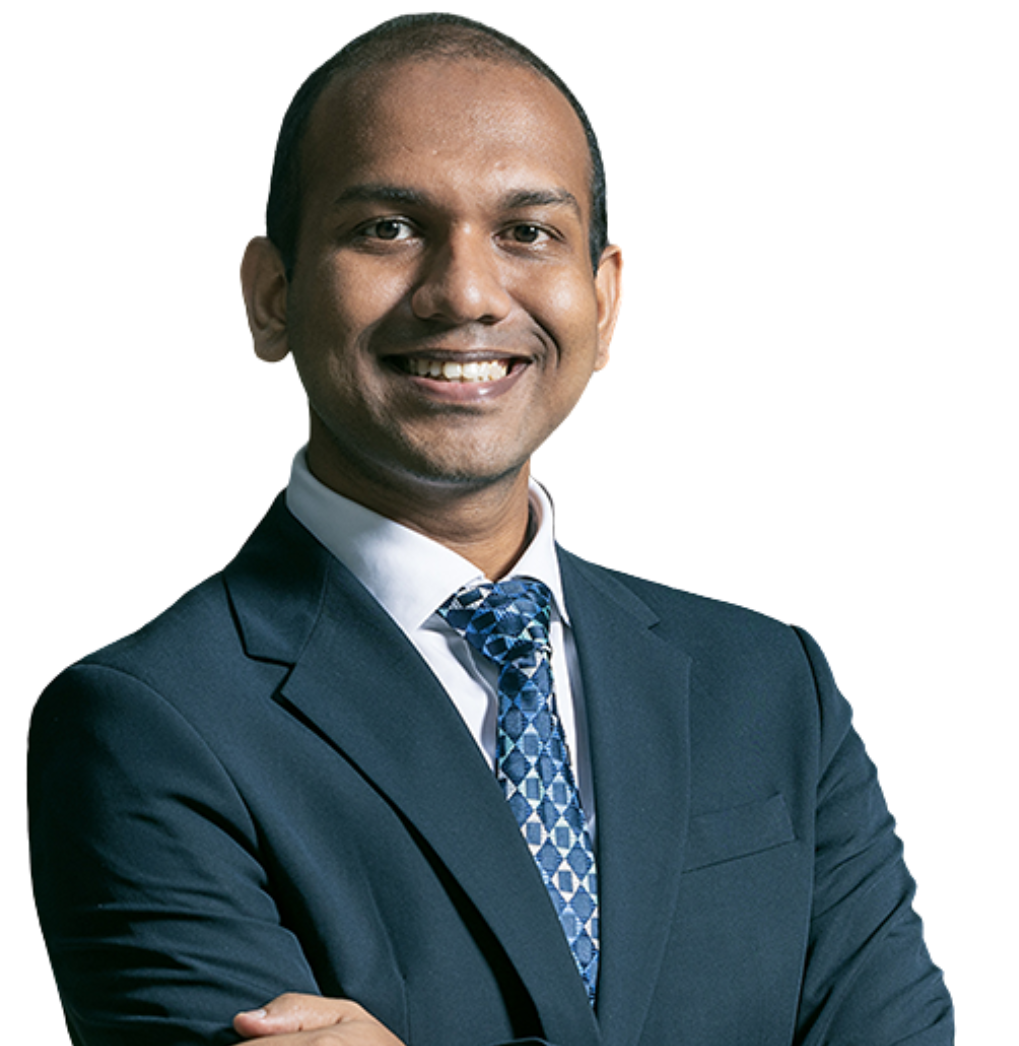
The School of Electrical and Electronic Engineering, Nanyang Technological University, Singapore, SingaporeLarge language models; Artificial intelligence; Natural language processing; Affective computing; Reasoning; Embodied AI; AI safety
Soujanya Poria is an Associate Professor at the School of Electrical and Electronic Engineering at Nanyang Technological University (NTU). Before that, he was an Associate Professor at Singapore University of Technology and Design and a senior scientist at A*STAR. He holds a Ph.D. degree in Computer Science from the University of Stirling, UK. Dr. Poria’s scholarly contributions include over 150 published papers in well-regarded conferences and journals. He has garnered substantial attention in the academic community, accumulating more than 40,000 citations on Google Scholar. His research has attracted funding from both governmental and industrial sources, and his achievements have been acknowledged through awards like the Social Impact Award at NAACL 2024, the IEEE CIM Outstanding Paper Award, and the ACM ICMI Best Paper Award Honorable Mention.
Dr. Poria has taken on significant responsibilities in various conferences and workshops, including roles as area co-chair in several ACL, NAACL, NeuRIPS, and EMNLP conferences. He has also served as a workshop co-chair at AACL 2022. His expertise has been recognized globally, leading to invitations for keynote presentations at notable events such as CICLing 2018, SocialNLP2019, MICAI 2020, and ICON 2020. Dr. Poria serves as an associate editor for reputable publications, including Cognitive Computation, Information Fusion, IEEE Transactions on Big Data, and Neurocomputing. In 2018, he was honored with the prestigious NTU Presidential Postdoctoral Fellowship. He was named one of the recipients of the IEEE’s “10 to Watch in AI” award in 2022.
In addition to this recognition, Dr. Poria has received other esteemed awards, including the President’s Young Scientist Award in 2023, MIT TR35 Innovator under 35 Asia Pacific, the IEEE CIS Outstanding Early Career Award in 2024, and the Aminer AI2000 Most Influential Scholar Honorable Mention Award in 2023 and 2024.

Department of Automation and Applied Informatics, Politehnica University of Timisoara, Bd. V. Parvan 2, Timisoara 300223, RomaniaControl structures and algorithms including conventional control; Fuzzy control; Data-driven control; Model-free control; Sliding mode control; Neuro-fuzzy control; Theory and applications of soft computing and machine learning; Systems modelling; Identification and optimization (including nature-inspired algorithms); Computer-aided design of control systems; Applications to mechatronics systems (including automotive systems and mobile robots); Embedded systems; Control of power plants; Servo systems; Electrical driving systems

Department of Mechanical Engineering, National University of Singapore, Singapore, SingaporeAdditive manufacturing; 3D printing; 3D bioprinting; Artificial Intelligence; Machine learning
Dr Sing Swee Leong joins the Department of Mechanical Engineering, NUS, as an Assistant Professor in August 2021. Prior to joining NUS, he was a Presidential Postdoctoral Fellow at the School of Mechanical and Aerospace Engineering and Singapore Centre for 3D Printing, Nanyang Technological University, Singapore, after receiving the prestigious fellowship in 2020. Swee Leong was named a Highly Cited Researcher by Clarivate in 2024, 2023, and 2022. In 2022, he was also awarded the Young Professional Award by ASTM International for his work in additive manufacturing and contribution in standard development for the field. As a scientist and innovator, Swee Leong’s interest is enabling material development and creating strategic and sustainable values for Industry 4.0 and beyond through the use and integration of advanced manufacturing. He is actively involved in inter-disciplinary research.
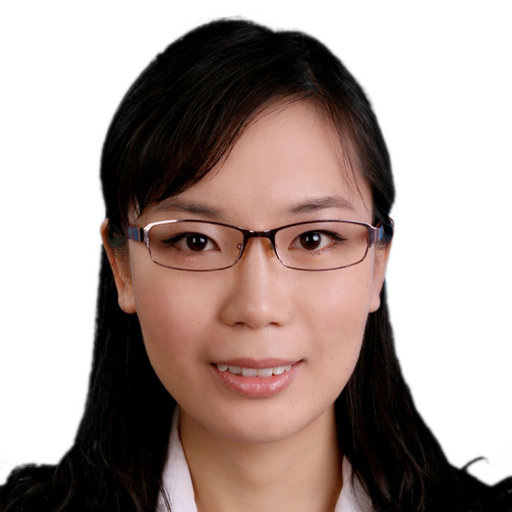
School of Mechanical & Aerospace Engineering, Nanyang Technological University, Singapore, SingaporeData-driven design; Multimodal learning; Generative modeling; Human-AI design; Large language models; Network analysis and graph theory; Design representation; Data analytics; Complex system
Dr. Song Binyang joined the School of Mechanical and Aerospace Engineering in October 2024 as an Assistant Professor in the Robotics & Design Cluster. She earned her bachelor’s degree and master’s degree in Automotive Engineering from Tsinghua University in Beijing, China, in 2011 and 2014, respectively. She completed her Ph.D. in Engineering Product Development at Singapore University of Technology and Design in 2019. Before joining us, Dr. Song Binyang gained postdoctoral experience at the Pennsylvania State University (2019-2021) and Massachusetts Institute of Technology (2021-2023), respectively. Most recently, she served as an Assistant Professor at Virginia Tech.
Her research focuses on applied machine learning and human-AI collaboration for engineering design, with particular interests in AI for Design - using multimodal learning and generative modelling to create innovative designs across various representation formats (e.g., text, sketches, images, and 3D models), and Design for AI – which involves human factor design of AI to enhance AI's collaborative potential in design settings.

Department of Manufacturing and Industrial Engineering, The University of Texas Rio Grande Valley, Edinburg, TX 78541, USAManufacturing engineering; Mechanical Engineering; Machining; Grinding
Dr. Anil Srivastava is currently a Star Professor in the Department of Manufacturing and Industrial Engineering at UTRGV. He received his doctoral degree in Mechanical Engineering from Indian Institute of Technology Kanpur, India. Dr. Srivastava has 30+ years of industry and academic research and leadership experiences in the areas of advanced manufacturing and materials, mainly, focusing on Precision Machining, Sustainability, Composite Materials, Smart Manufacturing, and Sensor Applications to Manufacturing Processes. Dr. Srivastava is member of SME and ASME and also, a Fellow of SME and Fellow of ASME.
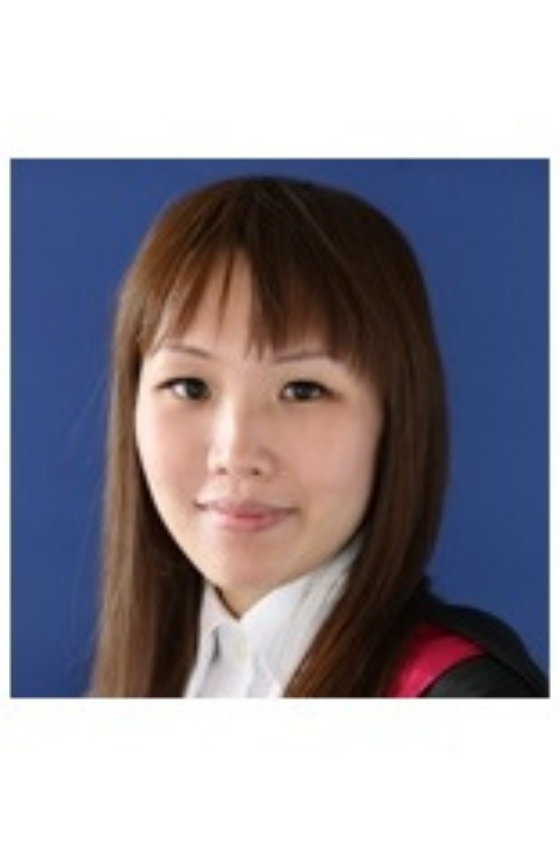
The Hong Kong Polytechnic University, Hong Kong, ChinaIntelligent textiles; Wearables for fashion; Knitted and woven structures; Design-led STEM
Jeanne is Professor of Fashion and Textiles at The Hong Kong Polytechnic University (HKPolyU) and Founder of GERI Ltd. She is a design practitioner who investigates creative innovation that interfaces design and technology. Her research focuses on intelligent textile design for fashion, interiors, rehabilitation, and Design-Led STEM processes. Jeanne's research in intelligent textiles had been patented and commercially licensed for real-world applications. She was part of a core team that secured a large-scale HKD$ 207 million strategic grant from InnoHK Research Clusters to establish (AiDLab), a research platform established by HKPolyU and the Royal College of Art, UK. Jeanne is a recipient of externally competitive funding of over HKD$25 million. Her research administration contributed to PolyU’s HK RAE2020 results for UoA38 Creative Arts, Performing Arts & Design. She has a record of award-winning teaching with pedagogical impact beyond the university. Her creative innovation designs and research were showcased at Milan Fashion Week A/W 2023, the Victoria & Albert Museum, and collected as part of the permanent collection of the National Museum of Silk, China. Jeanne's work has received international media coverage including Vogue, WGSN, Harper’s Bazaar, and the Public Broadcasting Service (USA). Jeanne is often invited to share her work internationally at TedX, ArcInTex, Parsons School of Design, USA and Hongik University, Korea. Recent awards include iF International Design Award 2023 and Red Dot Award 2023. Her community service includes serving as a member of the CreateSmart Initiative Vetting Committee as appointed the Secretary for Culture, Sports and Tourism, HKSAR. As a design consultant, Jeanne works with companies and organizations to implement fashion, textile, and creative education solutions. Her consultancies include LVMH Group (Celine, Givenchy, Kenzo, Loewe, Marc Jacobs), Nike, Alibaba, Fashionary, Kiabi, CLP Power Hong Kong Limited, The Hong Kong SAR Government (EMSD) and The Hong Kong Red Cross.
Jeanne is currently chairing the "Culture X AI: Design and Future Mode" with events in London, Shenzhen and Hong kong. She was chair of “Fashion X AI: 2022-2023 International Salon”, "Designing Future Techstyle 2019" and the program chair of DesForm 2023.

Multi-Scale Additive Manufacturing (MSAM) Lab, Department of Mechanical and Mechatronics Engineering, University of Waterloo, Waterloo, ON, N2L 3G1, CanadaAdditive manufacturing; In-situ monitoring and control of additive manufacturing processes; Modeling; Artificial intelligence
Dr. Toyserkani holds the Canada Research Chair position in Additive Manufacturing (AM) and has over 23 years of experience in different aspects of AM research and development, from mechatronics AM system development to AM applications in medicine and engineering. He established the first AM laboratory at a Canadian university - the Multi-Scale Additive Manufacturing (MSAM) Laboratory – which focuses on developing the next generation of AM processes and applications.
His lab is now the most comprehensive AM academic facility in Canada and one of the top 5 academic AM facilities in the world. His extensive experience in AM and leadership have allowed him to devote his academic life to addressing AM challenges holistically and promoting this strategic research area at the national and international levels.
He is an active steward in the AM field. He is the director of a Pan-Canadian NSERC Strategic Network entitled “Holistic Innovation in Additive Manufacturing (HI-AM),” which brings together leading AM experts from seven top Canadian universities, including the University of Waterloo, the University of Toronto, the University of British Columbia, McGill University, University of Alberta, Laval, and, Dalhousie. Several international universities and 14 industrial partners are involved in this network. Further information can be found on this website: HI-AM | NSERC Network for Holistic Innovation in Additive Manufacturing (nserc-hi-am.ca).
He is a voting member of the American Society for Testing and Materials International (ASTM)-Committee F42, which is a leading committee in developing standards for AM. He is also a member of the AM Advisory Committee of Advanced Manufacturing Supercluster (NGen) and was a member of the NSERC Selection Committee for Strategic Grant Applications (Advanced Manufacturing Target Area) from 2015 to 2018. He has been invited for >65 talks/panels in different countries. His research has been highlighted in many magazines and newspapers, such as “The Globe and Mail”.
He has 18 granted/pending patents on different aspects of AM. He has actively transferred his innovative technologies to industry. Two start-up companies have been established that stem from his R&D programs.
His research is having a significant impact on the young AM field. He has published 194 AM-related journal articles (received >12,100 citations as of January 2025). His research has been recognized through many awards/honours.

Singapore Institute of Manufacturing Technology (SIMTech), Agency for Science, Technology and Research (A⁎STAR), 5 Cleantech Loop, 636732, SingaporeMetal additive manufacturing; Artificial intelligence; Phase transformation and deformation; Metallic powder; High-throughput microstructure analysis; Novel structure design and optimization; Grain boundary engineering

Materials Genome Institute, Shanghai University, Shanghai, ChinaSolar cells; Photovoltaic technology; Photodetectors; Thin film growth; Materials genome; Surface & interface sciences; Opto-electronic material & devices
Shenghao Wang is a researcher at the Institute of Material Genome Engineering at Shanghai University. His research focuses on the field of materials science, particularly in the area of perovskite materials and their applications in solar cells. Wang has made significant contributions to the understanding of energy level alignment at interfaces in metal halide perovskite solar cells and has explored various methods to improve the efficiency and stability of these devices. His work includes studies on the accelerated degradation of methylammonium lead iodide perovskites induced by iodine vapor exposure, as well as the development of smooth perovskite thin films using hybrid deposition methods. Wang has published several high-impact papers in renowned journals such as Advanced Materials Interfaces, Nature Energy, and Energy & Environmental Science. His research also involves the observation of double indirect interlayer excitons in heterostructures and the recycled utilization of nanoporous gold electrodes for cost-effective perovskite solar cell fabrication.

Division of Light and Strong Materials, Institute of Metal Research, Chinese Academy of Sciences, Shenyang, ChinaMaterials genome; Machine learning; Structural materials
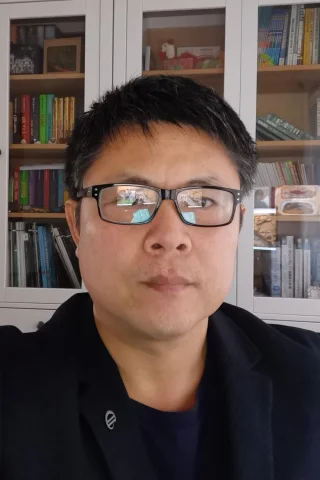
School of Physics, Engineering and Computer Science, University of Hertfordshire, Hatfield AL10 9AB, UKEnergy and sustainable design; Advanced cooling technology; Nanofluids; AI-machine learning; Computational fluid dynamics
Professor Hongwei Wu (FIMechE, FRAeS, FEI, FWSSET) is a full Professor of Thermofluids & Head of the Energy and Sustainable Manufacturing (ENSM) Research Group in the School of Physics, Engineering and Computer Science (SPECS), and he also leads the Research Group in Monitoring Climate and its Impact (MCI) at the University of Hertfordshire, UK. Professor Wu is a Chartered Engineer (CEng) and has been elected Fellow of several prestigious professional bodies, including the Institution of Mechanical Engineers (FIMechE), the Royal Aeronautical Society (FRAeS), the Energy Institute (FEI), and the World Society of Sustainable Energy Technologies (FWSSET). Professor Wu received his BEng and PhD in Thermofluids from Beihang University, completing his PhD in 2004 through a Joint PhD Programme with the Hong Kong University of Science and Technology (HKUST). Professor Wu's research spans a broad spectrum of energy and thermal sciences, with expertise in Advanced Cooling Technology, Energy Conversion and Storage Systems, Renewable Energy and Energy Efficiency, Battery Thermal Management System (BTMS), Two Phase and Multiphase Flow, Fluid-Solid Conjugate Heat Transfer, Modelling/Simulation methods (CFD)-DNS, LES, MDS, Optimisation and Process Control, AI-Machine Learning (ML)-Deep Neural Networks (DNNs).

Sibley School of Mechanical and Aerospace Engineering, Cornell University, Ithaca, New York, USAMechanics of biological materials; Materials design; Advanced manufacturing and materials; Biomechanics and mechanobiology
Prof. Jingjie Yeo is an assistant professor in Cornell University’s Sibley School of Mechanical and Aerospace Engineering. He is the Principal Investigator at the J² Lab for Engineering Living Materials. The overarching goal of Prof. Jingjie Yeo's research program is to lead advances in computationally designing and characterizing environmentally sustainable materials, with a focus on bacteria-based engineered living materials (ELMs) and the biopolymers that they produce. He is also a co-instructor in Station1, a social nonprofit organization dedicated to building the foundations of the university of the future through educational opportunity and socially-directed frontier STEM education, research, and internships. Prof. Jingjie Yeo is the recipient of multiple awards, including the NSF's most prestigious award, the NSF CAREER award, and the highest teaching award in Cornell's College of Engineering, the Dennis G. Shepherd Excellence in Teaching Award. Before joining Cornell University in 2020, Prof. Yeo was a research scientist in the Institute of High Performance Computing, Singapore where he helped develop cutting-edge, silk-based cosmeceuticals. Prior, he was a postdoc at both Tufts University and Massachusetts Institute of Technology, where he developed and performed numerous multiscale simulations with density functional theory and fully-atomistic to coarse-grained molecular dynamics modeling on a broad variety of biomaterials such as squid skin, silk and silk-elastin-like proteins, and graphene. He received both his Ph.D. and his B.Eng. degrees from the School of Mechanical and Aerospace Engineering in Nanyang Technological University Singapore.

State Key Laboratory of Electronic Thin Films and Integrated Devices, School of Optoelectronic Science and Engineering, University of Electronic Science and Technology of China (UESTC), Chengdu, PR ChinaSensors; Integrated sensors; Intelligent sensor system; Gas sensors; Sensing materials

Harvard Medical School, Brigham and Women's Hospital, Boston, United StatesBiofabrication; Bioprinting; Biomaterials; Tissue engineering; Tissue models

Institute of Metal Research, Chinese Academy of Sciences, Shenyang, ChinaBiomaterials; Biomimetic materials; Additive manufacturing; Tissue engineering

INSA Hauts-de-France, Université Polytechnique Hauts-de-France, FranceGenerative design; Design for AM; CAPP for AM; Data-driven integrated design & manufacturing; Additive manufacturing
Yicha Zhang is currently a Full Professor (Professeur des universités) in LAMIH UMR CNRS 8201, INSA Hauts-de-France, Université Polytechnique Hauts-de-France. He is actively engaged in design and planning for additive manufacturing, product-service system design, and data-driven CAX. With a portfolio of over 97 peer-reviewed publications, he was elected as a CIRP Associate Member in 2020 and received the prestigious CIRP Taylor Medal in 2021.
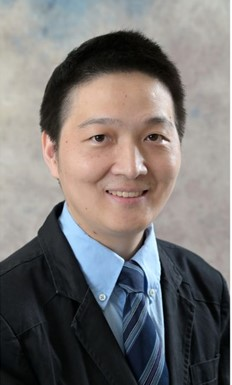
School of Mechanical & Aerospace Engineering, Nanyang Technological University, Singapore, SingaporeIndustrial AI; Machine learning; 3D printing; Smart Manufacturing; Topology optimization, Multiphysics modeling
Dr. Liang Xuan joined the NTU MAE family as an Assistant Professor in Digital Engineering & Smart Manufacturing in 2024. He has an impressive background in Mechanical Engineering, having recently served as a Postdoc Research Fellow in the University of Maryland at College Park and Carnegie Mellon University. He holds a Ph.D. in Mechanical Engineering from the University of Pittsburgh (2020), having received the M.S. and B.S. degrees in 2015 and 2011, respectively, both from Tsinghua University, China.
Prior to his postdoc experience, Dr. Liang mainly worked on numerical simulation for metal AM process in the ANSYS Additive Manufacturing Research Lab (AMRL) at the University of Pittsburgh. He firstly developed the modified inherent strain method and successfully performed accurate and efficient simulations for metal AM processes that include directed energy deposition (DED) and laser powder bed fusion (LPBF) processes. His expertise also extends to multiphysics topology optimization for structure-acoustic and structure-fluid systems.
With over 10 years of research experience, Dr. Liang has showcased his expertise in additive manufacturing (AM), computational mechanics, topology optimization, and machine learning (ML). Notably, Dr. Liang has been at the forefront of cutting-edge research, currently working in the field of artificial intelligence (AI)-enabled AM project. Dr. Liang’s current and ongoing work is targeted to combine structural design with AM process based on large-scale numerical simulation and ML. His group is devoted to developing new models and algorithms in the emerging research area of Industrial AI plus AM.

Institute of Space and Earth Information Science, The Chinese University of Hong Kong, Hong Kong, ChinaSustainable materials design; AI-driven materials discovery; Property prediction and optimization; Materials testing and evaluation; Data-driven multiscale modeling

Faculty of Engineering & IT, The British University in Dubai, Dubai, United Arab EmiratesAI based nondestructive testing and structural health monitoring; Ultrasonic waves modeling and generation principles; Material science; Vibration diagnostics and control systems; Machinery diagnostics; Nonlinear laser optics; Macroscale composites; nanocomposites; Smart materials; Cement-based reinforced concrete testing and evaluation

Physical and Computational Sciences Directorate, Pacific Northwest National Laboratory, Richland, Washington, USAMechanics of soft materials; Enhanced sampling methods; Protein-protein and protein-ligand interactions; Molecular-level mechanisms of protein behaviors; Multiscale modeling of hierarchical biological systems; Molecular representations and interatomic descriptors; Machine learning interatomic potentials; Phase stability and microstructures of high-entropy alloys

Department of Mechanical Engineering, National University of Singapore, Singapore, SingaporeAdditive manufacturing; Machine learning; Alloy design; Process optimization; Modeling

Northwestern Polytechnical University, Xi'an, ChinaDeep learning; Multi-scale modeling; Phase-field modeling; Crystal plasticity; Fracture; Reliability

Centre for Mechanical Technology and Automation (TEMA), Department of Mechanical Engineering, University of Aveiro, Aveiro, PortugalEngineering applications of AI; Mechatronics and robotics; 3D printing materials and technologies; Multibody dynamics; Vibration and damping; Smart materials and structures; Computational and experimental mechanics; Instrumentation and control; Vibroacoustics of structures and musical instruments; Structural health monitoring; Impact and wave propagation; Composite materiais and structures; Machine elements and design; Power transformers noise and vibration
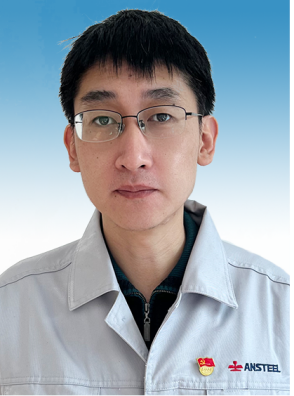
Digital Intelligence Research Institute, Benxi Iron & Steel Group, Benxi, ChinaSmarter steelmaking; Artificial intelligence; Collaborative optimization; Autonomous decision; Data and knowledge driven
Zong Nanfu, Director of the Benxi Iron & Steel Group Digital Intelligence Research Institute, Senior Engineer. He serves as a technical expert member of the Technical Expert Committee of Ansteel Group and as a Visiting Professor at Liaoning Institute of Science and Technology. He has long been engaged in research on the deep application of artificial intelligence in the steel industry, aiming to advance the steel manufacturing process towards high-end, intelligent, and green development. He has led more than 20 key projects for Ansteel Group, Benxi Iron & Steel Group, and Liaoning Province. His accolades include the First Prize for Outstanding Scientific and Technological Paper from the Liaoning Metal Society and the Third Prize for Natural Science Academic Achievement from Liaoning Province. He has published over 50 papers, including 40 SCI-indexed papers. He serves as the Executive Editorial Board Member of Intelligent IoT Technology and as a Youth Editorial Board Member for journals including Big Data and Information Analytics, AI & Materials, Robot Learning, Automation & Information Engineering, and Intelligent Manufacturing.



















